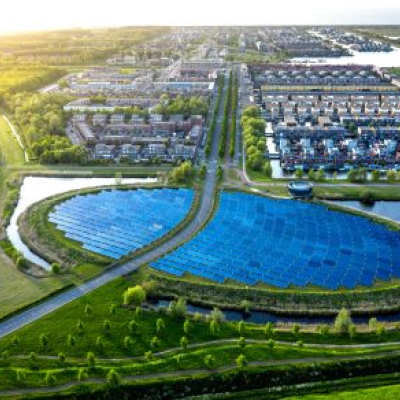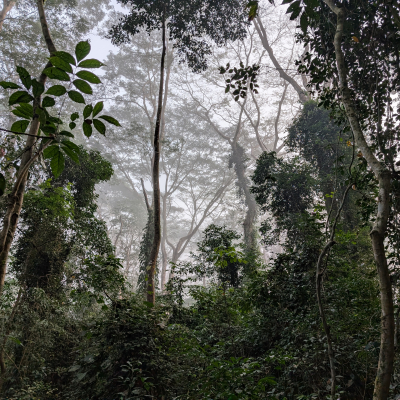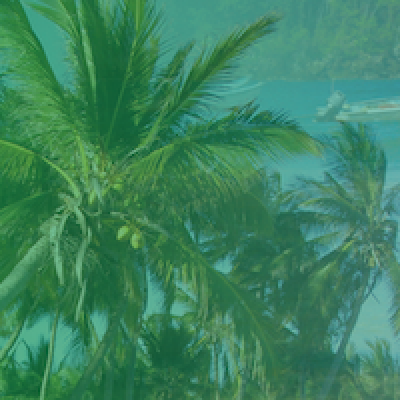Extremely vulnerable to climate change, the Pacific islands are receiving support on resilience and disaster preparedness from the EU. Ambassador Andrew Jacobs discusses renewable energy projects, capacity building at government level and resilience at community level, as well as EU collaboration with other donors and the challenges of regional integration.
| Andrew Jacobs is Head of the EU Delegation to the Pacific, responsible for EU relations with Fiji (where the Delegation is based), the Cook Islands, Kiribati, Federated States of Micronesia, Palau, Samoa, Tonga, Tuvalu, Niue, Marshall Islands, and Nauru, as well as French Polynesia, New Caledonia, Wallis and Futuna, and Pitcairn. |
Capacity4dev (C4D): What’s it like covering a region such as the Pacific?
Andrew Jacobs (AJ): We’re responsible for 15 countries and territories from Suva, Fiji, comprising 11 sovereign countries and four European overseas countries and territories in the Pacific.
The distance between the furthest point west and the furthest point east of our area of responsibility is greater than the distance between Berlin and Beijing. So logistically it’s a challenge covering the area. A lot of the island countries that we work with cannot be reached with a direct flight, even two or three flights. So sometimes we have to travel through Honolulu, Manila, Australia or New Zealand, because there are not the connections within the Pacific. Sometimes I still get emails from Brussels saying, “There’s an important meeting in Micronesia tomorrow. Can you be there?” And you have to point out that it will require two days to get there.
We have around 50 people, most of whom work on development assistance. And we have a big cooperation section and financing contracts section. We cover most of the Pacific from Fiji, but we also have an office in Nouméa in New Caledonia with five or six people.
C4D: What areas do you work on?
AJ: One key area in most of our national indicative programmes in the Pacific is renewable energy. But we’re also working on water and sanitation in a couple of countries and on building up resilience and disaster risk reduction. The Pacific is extremely vulnerable to climate change. So a lot of what we’re doing helps people build up their resilience to the natural disasters that unfortunately keep befalling them.
C4D: What is the EU doing to help Pacific islands cope with climate change?
AJ: The big challenge is trying to get money into the different countries. There are a lot of opportunities for financing, particularly through the Green Climate Fund, and we have the GCCA [Global Climate Change Alliance] and GCCA+. But the Pacific island countries often lack human resources, and it is quite difficult for them to get a credible proposal together or to lobby. So we are providing support in capacity building in order to assist the governments in our partner countries to be able to really respond to whatever opportunities there are for financing.

Water tank in Tuvalu. Credit: European Commission
There was a very bad cyclone which hit some of the outer islands in the Federated States of Micronesia, off Yap state. I was visiting there last year when water containers arrived, supported by the GCCA+ programme. They really made a huge difference, as people are now able to store water. It’s something we were very pleased to be able to provide quite soon after the cyclone – not only to provide immediate relief, but also to enable the people living in those islands to collect water and to be more resilient the next time – unfortunately, undoubtedly, a cyclone hits.
This year, unfortunately, there was a major cyclone in Fiji, Cyclone Winston, the biggest cyclone ever to hit the South Pacific. ECHO [the European Commission’s Directorate General for Humanitarian Aid and Civil Protection] were able to respond very quickly. We had a colleague coming from the ECHO office in Bangkok, two or three days after the cyclone, and they were able to provide some immediate support to the population most badly hit. We’ve been able to follow on from that by providing support to get communities up and running again, to help regenerate the economy in the worst-hit areas. So I think it was a very effective collaboration between DEVCO [the Directorate General for International Cooperation and Development] and ECHO on the cyclone response.
C4D: How are Pacific Islanders adapting to climate change?
C4D: Will the islands all survive?
AJ: I think we should be concerned about the future of the lower-lying countries, Kiribati, Tuvalu and the Republic of the Marshall Islands, because of the huge threat that they face from climate change. Larger countries, like Fiji, Papua New Guinea, Vanuatu and the Solomons, have the potential for a good future with considerable economic development. It will take some time in the less-developed countries. But the smaller island countries are the most vulnerable ones. I think they do require long-term development support.
C4D: Do you collaborate with other donors?
AJ: Yes. The donor with which we collaborate most closely is New Zealand. We have established a very successful partnership around renewable energy. We had a first renewable energy conference in Auckland in April 2013, and we agreed then to jointly support the establishment of more renewable energy resources in and around the Pacific. We’ve been doing a lot of parallel financing.
Earlier this year I was very pleased to be able to travel around to some of the Pacific island countries that we’re working with, together with Commissioner Mimica, and also together with the New Zealand foreign minister Murray McCully on a New Zealand Airforce plane. That enabled us to get to a number of countries over a few days, which otherwise would have taken several weeks to get to. Our partnership with New Zealand combines the very considerable presence that New Zealand has around the Pacific, because it’s close to New Zealand, with the European Union’s financial resources and expertise. We’re working with the New Zealanders now on climate change and agriculture in Vanuatu and the Solomon Islands, and it’s something that will go from strength to strength.
C4D: What is the potential for regional economic integration?
AJ: To tell the truth, there are limited trade opportunities. The industry with the biggest exports and biggest potential is fisheries, and some Pacific island countries are earning a lot of money from the export of tuna. But regional economic integration has been relatively limited so far. There is a group of countries in Melanesia – which means Fiji, Papua New Guinea, the Solomons and Vanuatu – which have a regional organisation called the Melanesian Spearhead Group. This has made concrete steps in establishing trade agreements, by trying to break down customs barriers and so on. But things are at a relatively early stage with regard to regional trade and economic integration, partly because of the logistical challenges, and partly because most of the countries produce very little in terms of manufactured products. Fiji is an exception, as is Papua New Guinea, but they are very much on their own.
Our regional indicative programme, which carries a budget between here and 2020 of €166 million, sets aside quite an amount for regional economic integration. But I think we need to adapt our ambitions to the circumstances, and not try to help the Pacific island countries to run before they can really walk.
C4D: How are renewable energy projects helping?
AJ: A lot of it is solar energy. In the Cook Islands, we have divided up the outlying islands between New Zealand and the European Union: We have taken the southern islands; New Zealand has taken the northern islands. We are providing solar panels to these islands, giving them electricity for the first time.

Solar panels being installed. Credit: European Commission
It is a very successful programme, and has been replicated in other countries as well. We have had for some
years a programme in the North Pacific, and I know that in the Marshall Islands – which is not a very big country, around 80,000 people – in the outer islands there I think we have provided electricity to around 1,200 people for the first time. These are villages, of maybe a hundred or so people on very remote islands, who until now had no electric power at all. Suddenly when you install solar panels, they are able to work in the evening; the kids are able to study; they’re able to be productive much later. The communities also benefit from the opportunities that people have to continue to be together in the evening, rather than having to go to bed as soon as the sun goes down. It really does change lives enormously, bringing electricity in for the first time.
The support for solar panels for the Republic of the Marshall Islands came from a €15.5 million project called North-REP that provided, in the Federated States of Micronesia, Palau and the Marshall Islands: solar home systems, giving thousands access to basic electricity services for the first time; solar power to schools and health centres; and solar charging stations for lanterns.
North-REP, implemented by the Pacific Community (SPC), aimed to improve the quality of life on outer islands, and to reduce dependency on fossil fuels via energy efficiency and grid-connected renewable energy, as well as increasing remote populations’ access to reliable off-grid renewable electricity services. It was successful particularly in the way it identified specific solutions appropriate for the target communities.
C4D: Why is the EU’s work in the Pacific important?
AJ: I think it’s important that all countries in the world, no matter how small or how large they are, have the potential to survive and preserve their cultures and their ways of life. I think it would be extremely difficult for us to justify not providing development assistance just on the basis that there are not many people living in a certain geographical area. It’s important for the survival of a very large number of smaller countries that we do continue to provide them with development assistance. I’ve worked in various regions round the world, but I’ve never found such immediate benefits accruing to populations as I have in the Pacific. We can make a huge difference very quickly, and we can make a lasting difference. That is extremely worthwhile.
This collaborative piece was drafted by the capacity4dev.eu Coordination Team.
Further reading
- Find out more about how the EU works with the Pacific countries by visiting the EU Delegation's website.
- Voices & Views: Enabling Communities to Tackle Climate Change
DISCLAIMER: This information is provided in the interests of knowledge sharing and capacity development and should not be interpreted as the official view of the European Commission, or any other organisation. Image credits: European Commission




Log in with your EU Login account to post or comment on the platform.